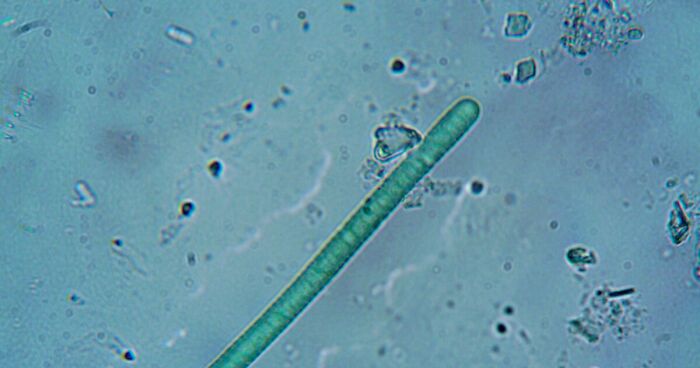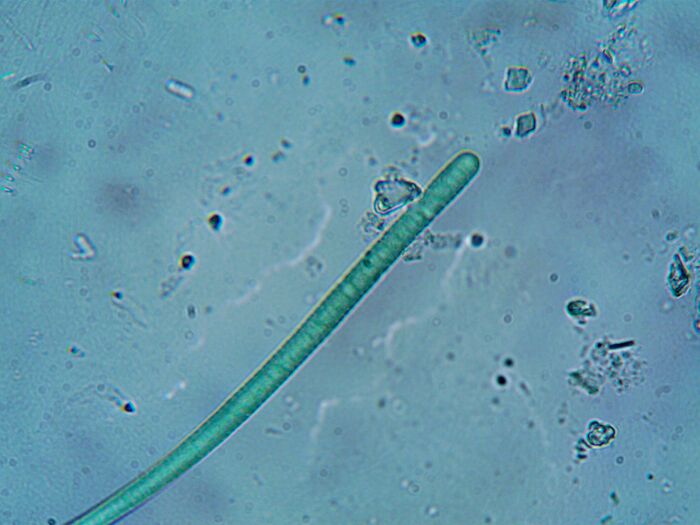Nearly four decades after the worst nuclear disaster in human history took place, scientists have found a species surviving amid the high levels of radiation in Chernobyl.
Researchers have found that microscopic worms are currently living in the Chernobyl Exclusion Zone (CEZ), seemingly without any radiation damage. This tiny species has emerged as an unlikely survivor since the catastrophic nuclear accident that rendered Chernobyl uninhabitable.
The colossal tragedy that took place in 1986 has turned CEZ and its surrounding area into the most radioactive landscape on the planet. Humans had to evacuate the area in the aftermath of the disaster, which left the place uninhabitable because of the high levels of radiation that still persist 38 years later.
Some reports say that humans won’t be able to live in the area for at least another 20,000 years. But microscopic worms appear to be able to reside in the same ghost town with no qualms.
Scientists collected microscopic worms from CEZ as part of a study
Image credits: Ron Lach / Pexels (Representational Image)
In a study conducted by researchers at New York University and published in Proceedings of the National Academy of Sciences (PNAS), it was discovered that these minuscule creatures suffered no radiation damage to their genomes despite exposure to Chernobyl’s chronic radiation.
The research team collected nearly 300 wild nematode isolates from various areas within the exclusion zone around Chernobyl, each with differing levels of radioactivity.
Researchers found that the nematodes suffered no radiation damage despite living in the most radioactive landscape on Earth
We can be encouraged that in the event of a nuclear holocaust the nematodes will likely survive!https://t.co/v07vyZ4yuf
— Billy Crow (@NematodeGuy) March 8, 2024
“These worms live everywhere, and they live quickly, so they go through dozens of generations of evolution while a typical vertebrate is still putting on its shoes,” said Matthew Rockman, a professor of biology at NYU and the study’s senior author.
While it’s surprising to see some kind of life thriving in the radioactive zone, it does not mean that Chernobyl is safe, Sophia Tintori, a postdoctoral associate in the Department of Biology at NYU, said.
“It more likely means that nematodes are really resilient animals and can withstand extreme conditions. We also don’t know how long each of the worms we collected was in the Zone, so we can’t be sure exactly what level of exposure each worm and its ancestors received over the past four decades,” Sophia said.
The finding does not suggest that Chernobyl is safe. It could mean that these worms are a lot more resilient than other species
why the chernobyl worms got more talent than me 😭 pic.twitter.com/XEJ2PAQBT3
— angel online 📨 ( wheelchair god ) (@xoangelonline) March 7, 2024
She noted that researchers are still trying to determine the full extent of the effects of the 1986 disaster at the Chernobyl Nuclear Power Plant on local populations.
“Chernobyl was a tragedy of incomprehensible scale, but we still don’t have a great grasp on the effects of the disaster on local populations. Did the sudden environmental shift select for species, or even individuals within a species, that are naturally more resistant to ionizing radiation?” she said.
Researchers are still trying to determine the full effects of the 1986 disaster on local populations
Image credits: turek / Pexels (Representational Image)
This is certainly interesting. But. :-) "Radiation damage" - a a big can of, well, worms. Particularly since in order to measure "radiation damage", they are almost certainly examining "biochemical" features and processes. Radiation; and chemistry; are two different universes, and many scientists have trouble integrating that. The two certainly intersect, but in weird ways that have been meagerly studied. So this IS interesting, but I want to see the results of a parallel study from an unrelated and expert team- second opinion. We know for a fact that some organisms are more "resistant" - whatever that means' - to radiation damage; tardigrades being the favorite example, but we have almost no clue how that works. Neat study- neat problem - more data please.
You will get the wiggly superpower! dancing-ca...bo0o0q.gif 
This is certainly interesting. But. :-) "Radiation damage" - a a big can of, well, worms. Particularly since in order to measure "radiation damage", they are almost certainly examining "biochemical" features and processes. Radiation; and chemistry; are two different universes, and many scientists have trouble integrating that. The two certainly intersect, but in weird ways that have been meagerly studied. So this IS interesting, but I want to see the results of a parallel study from an unrelated and expert team- second opinion. We know for a fact that some organisms are more "resistant" - whatever that means' - to radiation damage; tardigrades being the favorite example, but we have almost no clue how that works. Neat study- neat problem - more data please.
You will get the wiggly superpower! dancing-ca...bo0o0q.gif 

 Dark Mode
Dark Mode 

 No fees, cancel anytime
No fees, cancel anytime 




















































15
4